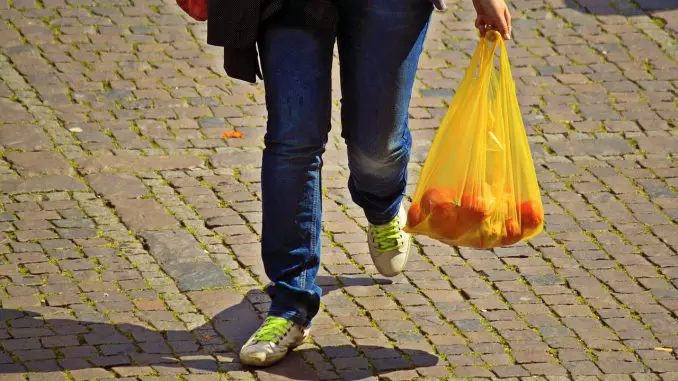
With a shock increase in the tax, the government wants to increase price of plastic bags. The idea is to limit the use according to the EU’s wishes – but the alternatives, such as fabric bags, are worse than plastic bags from the climate point of view. This is state climate policy at its worst.
The government and its support parties will raise the tax on plastic bags.
This is called “green tax exchange”, and is intended to give positive environmental effects and at the same time lighten the tax burden for those who behave in accordance with the wishes of the authorities. At least in theory. In practice, there is so much to suggest that the consequences for the environment would rather be negative, that it is difficult to interpret the tax on plastic bags as anything other than old ordinary poster policy.
If all plastics used in the EU are replaced by other materials, the volumes of waste would not decrease – they would be four times as high.
Last year, the Danish Ministry of the Environment published a report on plastic bags, which concluded that ordinary LDPE plastic shopping bags had the lowest environmental impact among a large number of alternatives. On the other hand, the intuitive choice for those who want to deaf their climate anxiety – the organic cotton fabric bag – proved to have to be used 149 times to offset their negative climate impact.
As early as 2010, the consulting firm Denkstatt, which specializes in the environment and sustainability, conducted a study that showed that if all plastics used in the EU are replaced with other materials, the volumes of waste would not decrease – they would be four times as high. At the same time, carbon dioxide emissions would increase by 61 percent. And four years before that, the British Environmental Protection Agency published a study showing that a cotton bag must be used 131 times for its environmental impact to be lower than if 131 HDPE plastic bags had been used instead. And that’s if you take away the fact that about four out of ten such plastic bags are also reused as garbage bags.
It is not too much to ask the government to find out the information that anyone with a search engine can find in minutes. Undoubtedly, those who drafted the proposal for a tax increase have encountered the above-mentioned investigations. However, sometimes politicians have a deplorable ability to duck for information that risks causing cracks in their ideologically colored glasses. Are you blindly convinced that the plastic bags are the main enemy of the climate, and have sufficiently high thoughts about their own ability to adapt people’s lifestyle with taxes and regulations – why should one be prevented by some research reports?
You may have a good answer to this rhetorical question, but you probably aren’t a politician with the toolbox full of excise taxes and bans.
95 percent of the plastic waste in the world ocean comes through ten river systems. None of them flow through the EU.
The Union has decided that members should only use 40 plastic bags per person per year.
Last year, a German study showed that up to 95 percent of the plastic waste in the world ocean comes through ten river systems. None of them flow through the EU. The Union’s plastic use is already a drop in the sea. Although the alternatives to plastic bags had been better for the environment, the new tax would not have been of any greater benefit, other than for the government’s (red) green self-image.
Leave a Reply